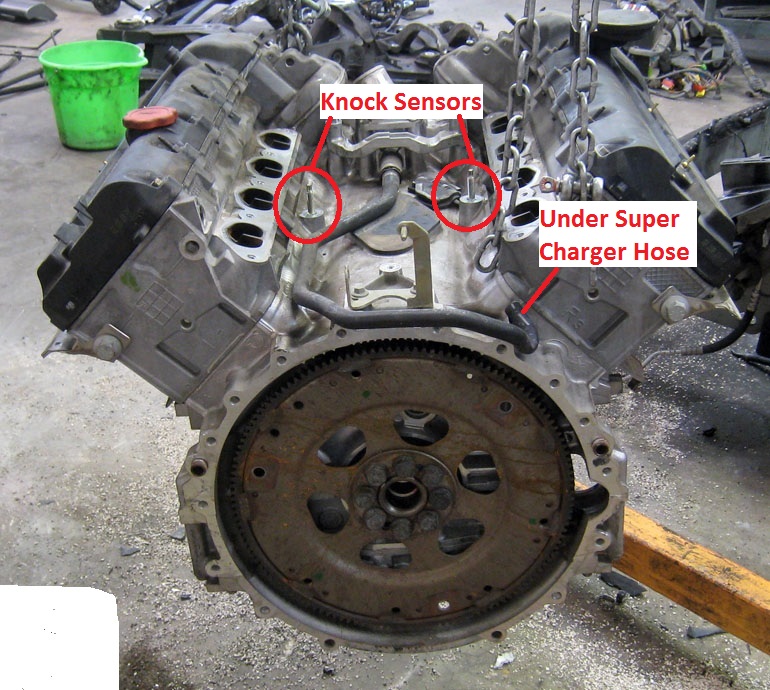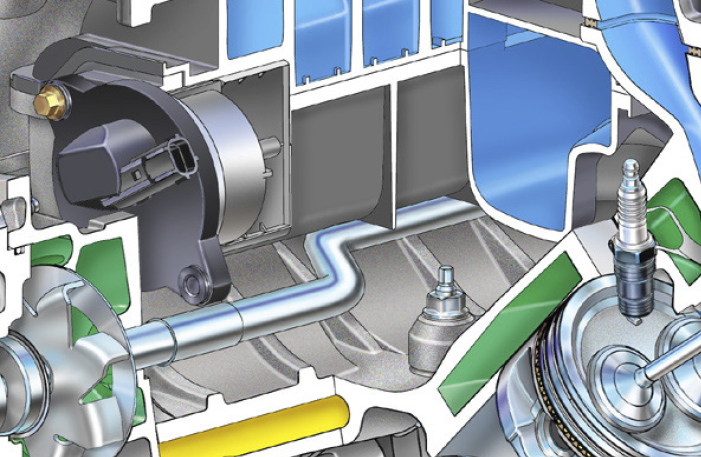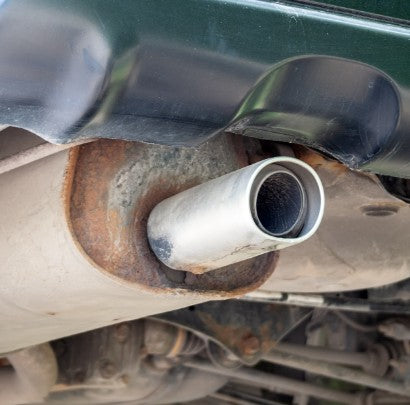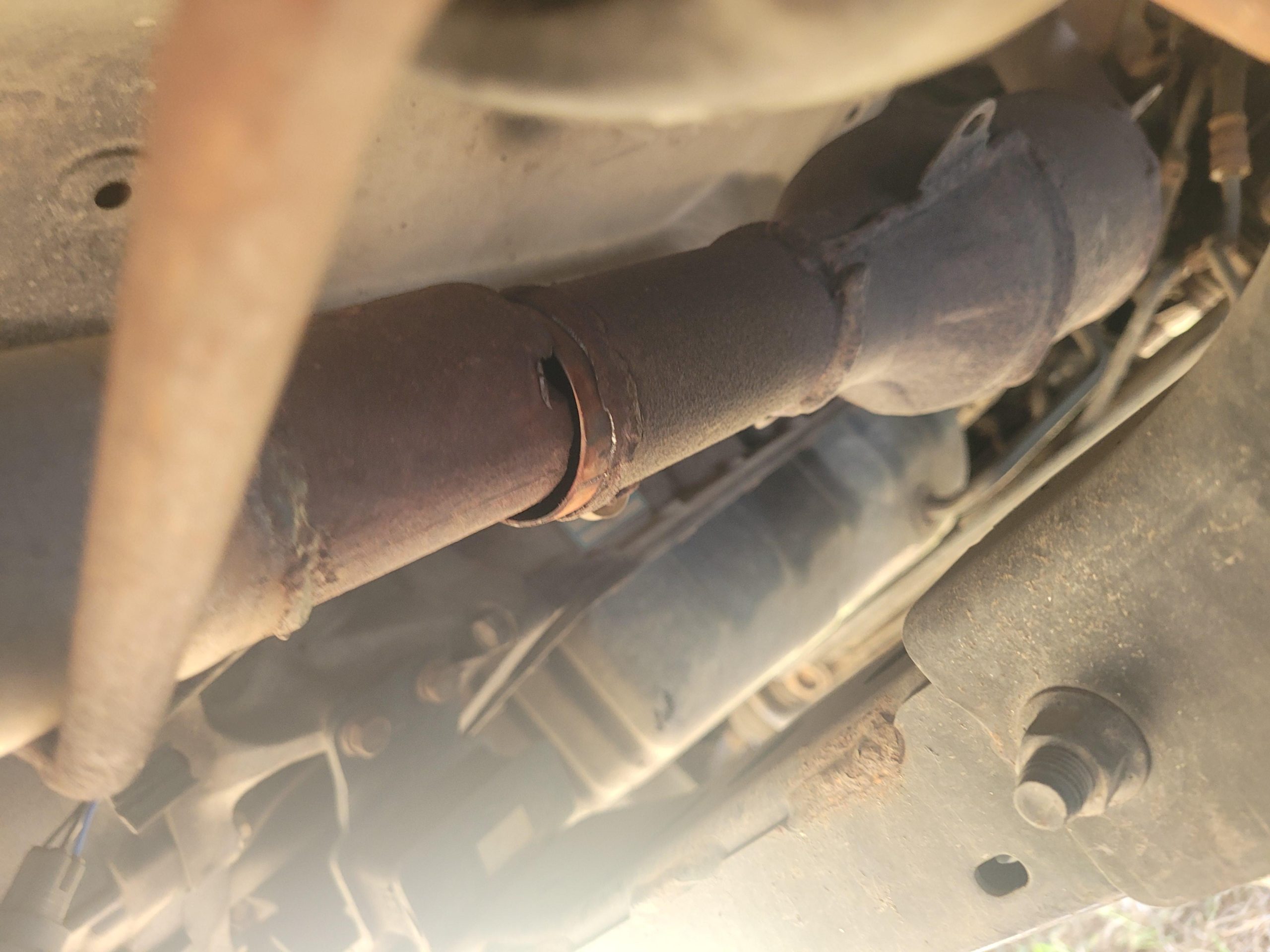Can a Knock Sensor Cause a Misfire
Yes, a knock sensor can cause a misfire if it fails or operates improperly. This can lead to incorrect engine timing and poor performance.
Faulty knock sensors often trigger engine misfires, disrupting the delicate balance required for optimal combustion. Detecting early detonation or “knocking,” these sensors help ensure the engine’s timing stays precise. Their primary role involves protecting the engine from damage due to pre-ignition, where fuel burns too early in the combustion cycle.
A knock sensor sends signals to the engine control unit (ECU), which adjusts the ignition timing accordingly. When a knock sensor malfunctions, it either sends no signals or incorrect signals to the ECU. This miscommunication can advance or retard ignition timing erroneously, causing misfires, reduced fuel efficiency, and potentially severe engine damage over time. Prompt diagnosis and replacement of a defective knock sensor are crucial for maintaining engine performance and longevity.
Unraveling The Role Of Knock Sensors
Imagine a small but mighty guardian inside your engine, dedicated to shielding it from harm. This guardian, known as a knock sensor, plays a crucial role in maintaining your vehicle’s health and performance. Let’s dive into the world of knock sensors and discover how they keep engine troubles at bay, including the dreaded misfire.
The Basics Of Engine Knock
Engine knock, also referred to as detonation, is a menacing sound signaling trouble under the hood. Air and fuel mix inside your engine and ignite. Ideally, this combustion is smooth and controlled. Sometimes, though, it behaves like fireworks going off inside your engine cylinders. That’s engine knock for you.
- Damage Threat: Persistent knocking can harm engine components.
- Fuel Octane: Lower octane fuels can increase knock likelihood.
- Performance Drop: Knocking can lead to reduced power and efficiency.
Functionality Of Knock Sensors
Knock sensors listen for the faintest hint of a knock. When they detect trouble, they alert the engine’s computer. Think of them as the engine’s ears, always on high alert.
| Function | Impact |
|---|---|
| Detection of Knock | Prevents engine damage |
| Signaling Engine Control Unit (ECU) | Adjusts engine timing |
| Improving Combustion | Increases efficiency |
When a knock sensor fails, it might miss the cries of distress from your engine. Failing to catch these signals, misfires can occur. A misfire means the engine is out of sync, leading to jerks or a drop in power. Is the knock sensor always to blame? Not necessarily. Yet, its role in preventing a misfire is undeniable.
Regular checks and maintenance are essential. If a knock sensor sends no warning signals, a technician should investigate. A timely response can save your engine from potential damage.
Symptoms Of A Faulty Knock Sensor
The knock sensor plays a crucial role in your vehicle’s engine performance. It detects vibrations indicating detonation. When it fails, the engine may experience issues. Recognizing the symptoms helps prevent further damage.
Common Indicators
A faulty knock sensor sends signals to your car’s computer. It warns of internal engine knocks. Be alert for these signs:
- Check Engine Light: The light on the dashboard turns on.
- Reduced Fuel Economy: More trips to the gas station.
- Poor Acceleration: Slow response when speeding up.
- Engine Noise: Pinging or knocking sounds during acceleration.
Connection To Engine Misfires
A knock sensor does not directly cause misfires. It senses irregularities. A malfunctioning sensor might fail to alert the engine’s control unit of knocking. Untreated detonation can lead to misfires. Below are ways a faulty knock sensor is connected to misfires:
- Incorrect Fuel Mixture: Leads to uneven burning.
- Erratic Spark Timing: Results in improper combustion.
- Damage to Pistons: Long-term knocking harms engine components.
Regular maintenance is key. Early diagnosis prevents costly repairs.
Misfires Explained
An engine misfire is a common issue that can trigger various warning lights on your dashboard and lead to a number of performance problems. Understanding the root causes of misfires is essential for any car owner. This discussion will explore how a knock sensor could potentially lead to misfires and affect engine performance.
What Constitutes A Misfire?
An engine misfire occurs when one or more of the cylinders fail to ignite fuel correctly. This interruption in the engine’s combustion cycle can cause noticeable jolts or shudders when accelerating.
| Common Misfire Symptoms |
|---|
| Rough idling |
| Reduced fuel efficiency |
| Uneven power when accelerating |
| Check Engine light turns on |
Symptoms like these can point to a misfiring engine. The reasons behind a misfire can vary, ranging from ignition system failures, fuel system problems, or mechanical mishaps.
Impact On Engine Performance
When misfires happen, they negatively impact engine performance. This can lead to a range of issues:
- Loss of power and acceleration: The engine does not operate at its full potential.
- Increased emissions: Unburnt fuel can cause excess pollution.
- Potential damage: Continuous misfiring can harm engine components.
The knock sensor’s role is to detect engine knocking, which is a symptom of pre-detonation. If the knock sensor is faulty, it can provide improper timing adjustments. This miscommunication can lead to an uneven air-fuel mixture, resulting in a misfire.

Credit: www.underhoodservice.com
Diagnosing Knock Sensor-related Misfires
Engine misfires can be troubling and puzzling. The knock sensor is a key player in your car’s engine management system. Its job is to detect engine knock or detonation. When it fails, it can lead to misfires. Let’s explore how to diagnose if a knock sensor is causing engine misfires.
Troubleshooting Steps
Identifying a knock sensor issue involves several steps:
- Check Engine Light: Begin with reading the diagnostic trouble codes (DTCs).
- Visual Inspection: Look for obvious damage to the sensor or wiring.
- Listen for Knock: Use a mechanic’s stethoscope to listen for unusual noises.
- Test Sensor Resistance: Measure the resistance with a multimeter to ensure it matches specifications.
Tools And Techniques
Proper tools and techniques are critical for an accurate diagnosis:
- OBD-II Scanner: This tool reads the car’s trouble codes.
- Mechanic’s Stethoscope: Enables you to hear engine sounds.
- Multimeter: Essential for testing sensor resistance and wiring integrity.
Always follow the manufacturer’s specifications when using these tools.
Solving The Misfire Puzzle
Engine problems often feel like vast, unsolvable mysteries. Think of your engine as a big puzzle. Each piece fits together just right. When a piece, like the knock sensor, fails, you might experience a misfire. Misfires can feel like your car is stuttering or hesitant when you press the gas. It’s a sign that one or more engine cylinders are not working properly. Diagnosing the exact cause of a misfire can be tricky. A faulty knock sensor could be the culprit. Let’s dive into how replacing a knock sensor might solve this riddle.
Replacing The Knock Sensor
The knock sensor is like a tiny detective inside your engine. It listens for the wrong type of knocking. This is not the ‘knock-knock’ of a joke, but the sound of potentially damaging detonations. If it’s broken, your engine might misfire. Replacing the knock sensor can be a key step in solving the misfire issue. Follow these steps:
- Locate the knock sensor on your engine.
- Remove the faulty sensor.
- Install a new sensor.
- Clear any error codes.
- Test the engine.
Additional Fixes For Misfires
There are other reasons your engine might misfire. Remember, it’s a complex puzzle. If changing the knock sensor doesn’t work, consider these fixes:
- Check spark plugs and wires.
- Inspect fuel injectors.
- Examine the ignition system.
- Look at the airflow sensor.
- Test compression levels.
Each part plays a role. They all have to work right to solve the misfire puzzle. A good mechanic can help. They can check these parts for you. They fix what’s broken. A smooth ride means the puzzle is complete. Your engine is happy again!

Credit: eeuroparts.com
Preventing Future Engine Issues
Regular car care stops engine misfires before they begin. A sound engine purrs smoothly. But when it coughs and sputters, a knock sensor may be the cause. This little device signals your car’s computer when the engine knocks. Ignoring the knock sensor can lead to misfires and long-term damage. Stay ahead with simple yet critical maintenance steps.
Maintenance Tips
Keep your engine running flawlessly with these tips:
- Regularly check the knock sensor for wear and tear.
- Follow your car’s service schedule to the letter.
- Use high-quality fuel to prevent engine knocking.
- Listen for unusual sounds and address them promptly.
- Ensure the fuel system stays clean for optimal performance.
- Replace spark plugs and wires as recommended by the manufacturer.
When To Consult A Professional
Some signs suggest you need expert advice:
- Check Engine light is on or flashing.
- You hear persistent knocking sounds during acceleration.
- The engine’s performance drops suddenly.
- Misfires happen often, even after basic fixes.
- You have a failed emissions test.
A trusted mechanic will diagnose the issue accurately. They’ll suggest the best course of action. Most importantly, they will fix the knock sensor if it’s the root cause of misfires. Prevent costly repairs by acting early.

Credit: www.jaguarforums.com
Frequently Asked Questions Of Can A Knock Sensor Cause A Misfire
Can A Faulty Knock Sensor Trigger Engine Misfires?
Yes, a faulty knock sensor can cause engine misfires. The sensor’s role is to detect engine knock or pinging and signal the computer to adjust the ignition timing. If it malfunctions, the engine timing can be off, leading to misfires.
How Does A Knock Sensor Affect Engine Performance?
A knock sensor directly influences engine performance by ensuring optimal timing for the combustion process. When it fails, it can lead to poor fuel economy, reduced power, and potentially cause engine damage.
What Symptoms Indicate A Bad Knock Sensor?
Symptoms of a bad knock sensor include a check engine light, poor acceleration, increased fuel consumption, and an audible knocking sound. Additionally, the vehicle may enter a failsafe mode to prevent damage.
Will Replacing A Knock Sensor Fix Misfires?
Replacing a bad knock sensor can fix misfires if the sensor was the root cause. However, it’s important to diagnose other potential issues as well, such as spark plugs or fuel injectors, before replacement.
Conclusion
Understanding the role of the knock sensor is crucial for engine health. Its failure can indeed trigger misfires, affecting performance and fuel efficiency. Regular maintenance is key. If misfires occur, consult a professional promptly. Can a knock sensor cause a misfire?
Absolutely – stay vigilant to keep your engine running smoothly.







